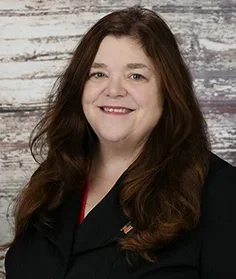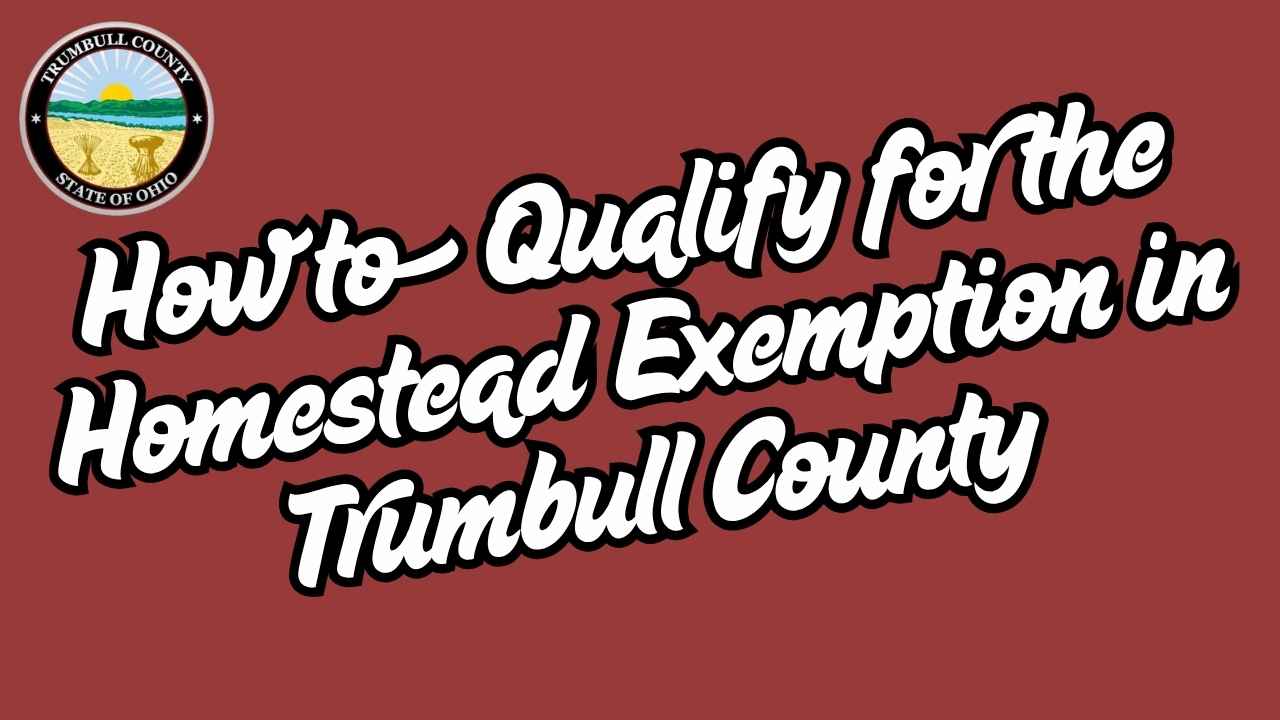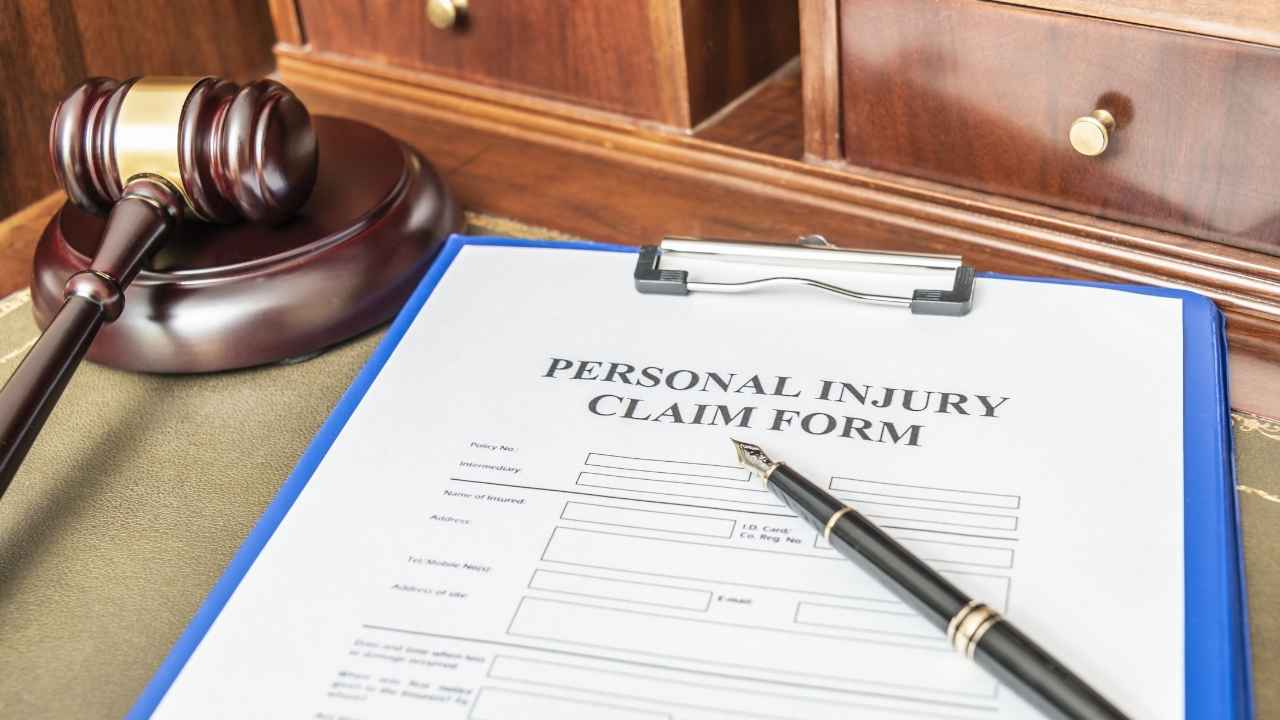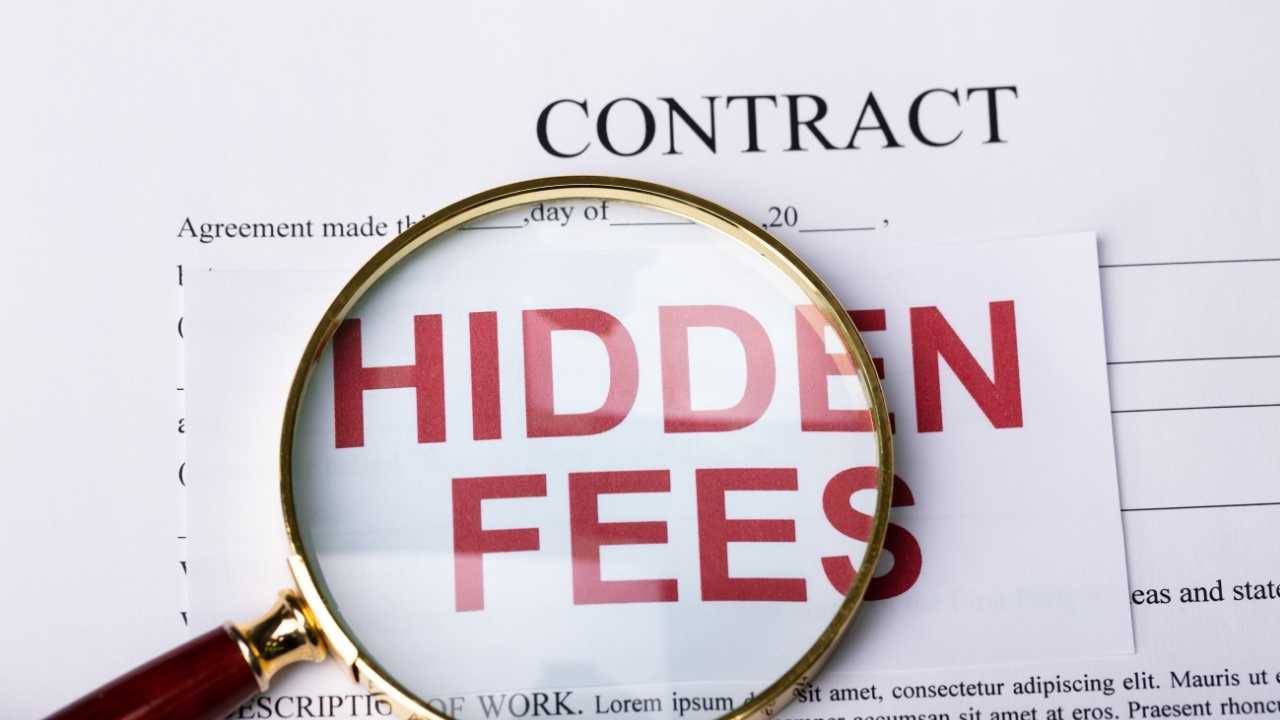To get the Homestead Exemption in Trumbull County, Ohio, you need to own and live in a home as your main residence by January 1 of the application year. You must be at least 65 years old, be disabled, or be a surviving spouse of someone who was 59 or older when they died. Your household income must not be over the state limit, like $38,600 in 2023.
You have to apply by December 31 for houses or by the first Monday in June for mobile homes. This article will guide you through the process to save on property taxes.
What Is the Homestead Exemption in Trumbull County?
The Homestead Exemption in Ohio helps homeowners by reducing their property taxes. In Trumbull County, it can save you up to $26,200 a year. It’s for seniors, disabled people, and some surviving spouses who meet certain criteria.
This program doesn’t hurt local schools and governments because the state pays back the lost taxes. Knowing who qualifies and how to apply is important to get this benefit.
Who Qualifies for the Homestead Exemption in Trumbull County?
To qualify for the Homestead Exemption in Trumbull County, you must meet Ohio’s rules. Here are the main requirements to see if you qualify. Always check with the Trumbull County Auditor’s Office for the latest information.
Age-Based Eligibility
You might qualify if you’re 65 or will be by the year you apply. The rule applies to you or your spouse if the home is your main residence. You’ll need to show your age with a driver’s license or birth certificate.
Disability-Based Eligibility
If you’re disabled and can’t work by January 1 of the application year, you might qualify. You need a doctor’s or agency’s certification. Your disability must stop you from working a lot.
Surviving Spouse Eligibility
If your spouse got the exemption and died, you might qualify if you were 59 or older. You must own and live in the home as your main residence.
Income Requirements
Your household income, including your spouse’s, must not go over the state’s limit. For 2023, this was $38,600. You’ll need to show your Ohio income tax returns to prove this.
Residency and Ownership Requirements
You must own and live in the home as your main residence by January 1 of the application year. This rule applies to both houses and mobile homes. The home must be where you vote and file your Ohio taxes.
One Property Rule
You can only claim the Homestead Exemption on one property in the U.S. If you have more than one home, only the one you live in qualifies. Homes owned by companies or trusts usually don’t qualify.
Special Considerations for Disabled Veterans
Disabled veterans with a 100% service-related disability might get an extra exemption. This can save up to $52,300 of your home’s value. You need a special form (DTE 105I) and proof from the Department of Veterans Affairs. There’s no income limit for this exemption.
Benefits of the Homestead Exemption in Trumbull County
The Homestead Exemption can save you a lot of money. Here’s how it helps:
- Tax Savings: It protects up to $26,200 of your home’s value, lowering your property taxes. For example, a $100,000 home is taxed as if it’s worth $73,800.
- Average Savings: Homeowners usually save about $400 a year, based on local taxes.
- No Impact on Local Services: The state pays schools and local governments, so they don’t lose money.
- Enhanced Exemption for Veterans: Disabled veterans can save even more, up to $52,300, doubling the tax relief.
This savings can really help, like for those on fixed incomes. You only need to apply once, unless your situation changes.
How to Apply for the Homestead Exemption in Trumbull County
Applying for the Homestead Exemption in Trumbull County is easy. Just gather the right documents and meet the deadlines. Follow these steps for a smooth application.
Step 1: Gather Required Documents
You’ll need to show proof of eligibility. Here’s what you’ll need:
- Proof of Age: A copy of your driver’s license, Ohio ID card, birth certificate, or passport.
- Proof of Disability: Form DTE 105E (Certificate of Disability) signed by a doctor or psychologist, or a disability letter from a state or federal agency.
- Proof of Income: Your latest Ohio income tax return to show your household income.
- Proof of Ownership and Residency: A driver’s license or ID with your address, or other documents like a deed or voter registration.
- For Disabled Veterans: A VA disability letter showing 100% service-related disability.
- For Surviving Spouses: Proof of age and a death certificate of your spouse who got the exemption.
Step 2: Complete the Application Form
The main form is DTE 105A (Homestead Exemption Application for Senior Citizens, Disabled Persons, and Surviving Spouses). Disabled veterans use Form DTE 105I. You can find these forms on the Trumbull County Auditor’s website or at their office.
Step 3: Submit Your Application
Send your application to the Trumbull County Auditor’s Office by the deadline:
- Real Property: December 31 of the year you want the exemption.
- Manufactured or Mobile Homes: The first Monday in June of the year before the tax year.
You can mail or hand-deliver your application to:
Trumbull County Auditor’s Office
160 High Street NW
Warren, OH 44481
Remember, you need a paper application with your signature. Electronic filing is not allowed.
Step 4: Await Approval
You’ll get a notice from the county auditor by the first Monday in October. It will tell you if your application was approved. If not, it will explain why. You can appeal using Form DTE 106B by the first-half tax payment deadline (usually January or February).
Step 5: Notify the Auditor of Changes
If your situation changes (like moving or selling your home), tell the county auditor. Not doing so might lead to penalties, including having to pay back benefits.
Deadlines and Key Dates for 2025
Applying for the Homestead Exemption on time is key. Here are the important dates for 2025:
- January 1: You must own and occupy the home as your primary residence.
- December 31: Deadline to file for real property exemptions for the 2025 tax year.
- First Monday in June: Deadline for manufactured or mobile home exemptions for the 2026 tax year.
- First Monday in October: Notification of approval or denial from the county auditor.
- January/February 2026: Deadline to appeal a denied application for real property (check with the auditor for exact dates).
Late applications for prior years may be accepted in some cases. Contact the Trumbull County Auditor’s Office at (330) 675-2420 for details.
Homestead Exemption Eligibility Criteria in Trumbull County
| Criteria | Details |
|---|---|
| Age | 65 or older (or turning 65 in the application year) |
| Disability | Permanent and total disability, certified by a physician or agency |
| Surviving Spouse | At least 59 at the time of spouse’s death, who was receiving the exemption |
| Income Limit | Household income not exceeding $38,600 (2023 for 2024 tax year) |
| Residency | Own and occupy the home as primary residence as of January 1 |
| Property Limit | One property in the U.S.; no corporations or certain trusts |
| Veterans Exemption | 100% service-related disability, up to $52,300 exemption, no income cap |
Common Questions About the Homestead Exemption
Do I Need to Reapply Every Year?
No, once approved, you don’t need to reapply unless your circumstances change. This includes moving or your income going over the limit. The county might check your eligibility sometimes, so keep your information up to date.
What If I Miss the Application Deadline?
You might be able to file a late application for the year before. For more information on late filings, contact the Trumbull County Auditor’s Office.
Can I Claim the Exemption on a Mobile Home?
Yes, owners of manufactured or mobile homes can qualify. You must meet the same age, disability, or surviving spouse criteria and live in the home as your primary residence. The deadline for these homes is earlier, on the first Monday in June.
What Happens If I Sell My Home?
The exemption stays with the home for the current tax year. If you buy a new home, you need to apply for the exemption again for the next tax year.
Are There Penalties for False Information?
Yes, lying on your application is a fourth-degree misdemeanor in Ohio. This means you can’t get the exemption for three years. Always give accurate information.
Homestead Exemption vs. Owner-Occupancy Credit in Trumbull County
| Feature | Homestead Exemption | Owner-Occupancy Credit |
|---|---|---|
| Eligibility | Age 65+, disabled, or surviving spouse | Any homeowner occupying the home |
| Tax Benefit | Up to $26,200 (or $52,300 for veterans) exempt | 2.5% reduction on property taxes |
| Income Requirement | Yes, must not exceed state limit | No income requirement |
| Application Deadline | December 31 (real property) | No deadline |
| Application Form | DTE 105A or DTE 105I | DTE 105C |
Tips for a Successful Application
- Double-Check Documents: Make sure all forms and proofs are correct to avoid delays or denials.
- Contact the Auditor: If you have questions, call the Trumbull County Auditor’s Office at (330) 675-2420 or visit their website.
- File Early: Apply well before the deadline to allow time for processing or corrections.
- Keep Copies: Make copies of all documents before submitting, as originals may not be returned.
- Appeal Denials Promptly: If your application is denied, file an appeal (Form DTE 106B) by the specified deadline to contest the decision.
Additional Property Tax Relief in Trumbull County
Beyond the Homestead Exemption, Trumbull County homeowners may qualify for other tax relief programs:
- Owner-Occupancy Credit: Offers a 2.5% reduction on property taxes for homeowners who live in their home as of January 1. No income limit applies, and there’s no application deadline.
- Current Agricultural Use Value (CAUV): For properties used for agriculture, this program taxes land based on its agricultural value.
- Property Tax Rollback: Ohio provides a 10% rollback on property taxes for all homeowners and an additional 2.5% for owner-occupied homes.
Contact the Trumbull County Auditor’s Office for details on these programs and how to apply.
Why the Homestead Exemption Matters in 2025
With property values and taxes rising in many parts of Ohio, the Homestead Exemption is more valuable than ever. In Trumbull County, where the median home value is about $120,000, the exemption can significantly reduce your tax burden. For example, a $26,200 exemption on a $120,000 home lowers the taxable value to $93,800, potentially saving you $400–$600 annually, depending on local millage rates.
The enhanced exemption for disabled veterans offers even greater relief, making homeownership more affordable for those who’ve served. With no need to reapply annually, it’s a long-term benefit for eligible residents.
Where to Find More Information
For the most accurate and up-to-date information, visit the Trumbull County Auditor’s Office website at https://trumbullauditorhelp.org/ or contact them directly:
- Phone: (330) 675-2420
- Address: 160 High Street NW, Warren, OH 44481
- Forms: Available online or at the office
You can also find application forms and guidelines on the Ohio Department of Taxation website at tax.ohio.gov. If you need help completing forms or have questions about eligibility, the auditor’s staff is available to assist.
Conclusion
The Homestead Exemption in Trumbull County helps lower property taxes for seniors, disabled people, and surviving spouses. To qualify, you must be over 65, disabled, or a surviving spouse. You also need to meet income and residency rules.
By doing so, you can protect up to $26,200 (or $52,300 for disabled veterans) of your home’s value from taxes. To apply, file by December 31 for houses or the first Monday in June for mobile homes. Make sure you include all needed documents.
For help, contact the Trumbull County Auditor’s Office. This exemption can save you a lot of money. It helps you stay in your home more easily in 2025 and later.




